Lisa Ehrlinger
Knowledge Graphs in Manufacturing and Production: A Systematic Literature Review
Dec 16, 2020
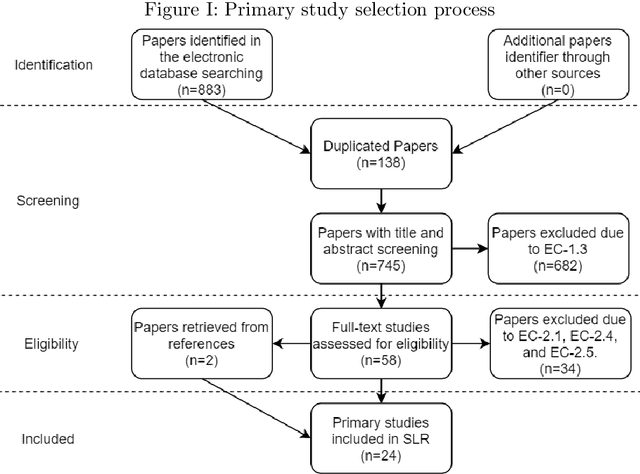
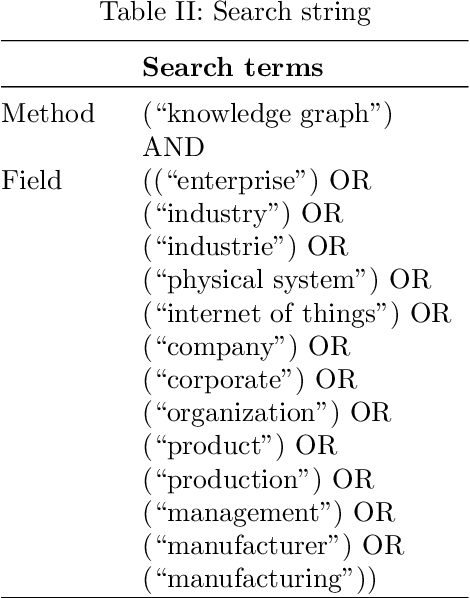
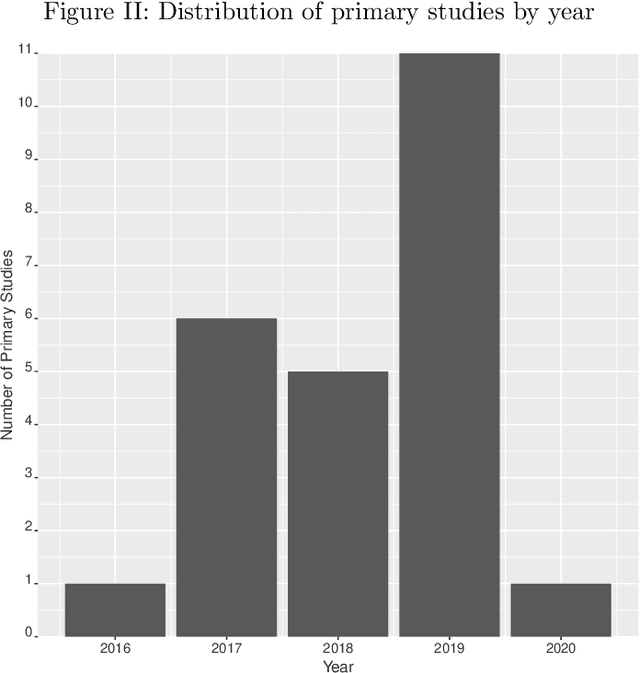
Abstract:Knowledge graphs in manufacturing and production aim to make production lines more efficient and flexible with higher quality output. This makes knowledge graphs attractive for companies to reach Industry 4.0 goals. However, existing research in the field is quite preliminary, and more research effort on analyzing how knowledge graphs can be applied in the field of manufacturing and production is needed. Therefore, we have conducted a systematic literature review as an attempt to characterize the state-of-the-art in this field, i.e., by identifying exiting research and by identifying gaps and opportunities for further research. To do that, we have focused on finding the primary studies in the existing literature, which were classified and analyzed according to four criteria: bibliometric key facts, research type facets, knowledge graph characteristics, and application scenarios. Besides, an evaluation of the primary studies has also been carried out to gain deeper insights in terms of methodology, empirical evidence, and relevance. As a result, we can offer a complete picture of the domain, which includes such interesting aspects as the fact that knowledge fusion is currently the main use case for knowledge graphs, that empirical research and industrial application are still missing to a large extent, that graph embeddings are not fully exploited, and that technical literature is fast-growing but seems to be still far from its peak.
A Survey of Data Quality Measurement and Monitoring Tools
Jul 18, 2019
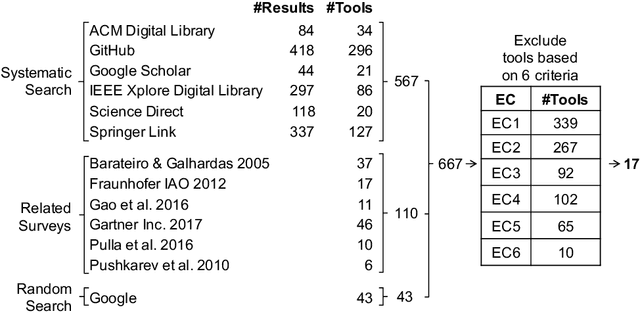
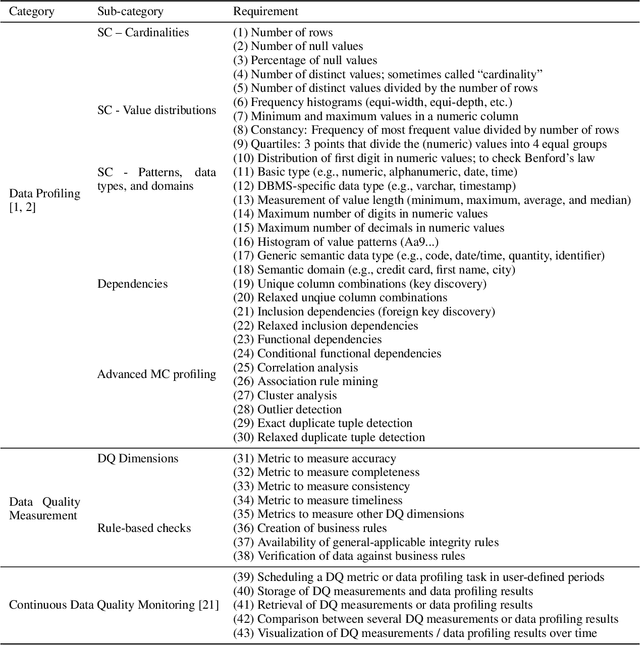
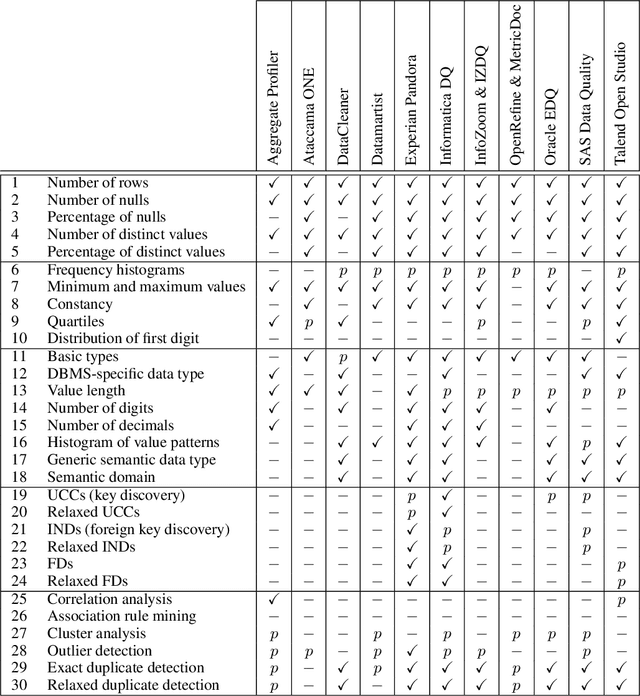
Abstract:High-quality data is key to interpretable and trustworthy data analytics and the basis for meaningful data-driven decisions. In practical scenarios, data quality is typically associated with data preprocessing, profiling, and cleansing for subsequent tasks like data integration or data analytics. However, from a scientific perspective, a lot of research has been published about the measurement (i.e., the detection) of data quality issues and different generally applicable data quality dimensions and metrics have been discussed. In this work, we close the gap between research into data quality measurement and practical implementations by investigating the functional scope of current data quality tools. With a systematic search, we identified 667 software tools dedicated to "data quality", from which we evaluated 13 tools with respect to three functionality areas: (1) data profiling, (2) data quality measurement in terms of metrics, and (3) continuous data quality monitoring. We selected the evaluated tools with regard to pre-defined exclusion criteria to ensure that they are domain-independent, provide the investigated functions, and are evaluable freely or as trial. This survey aims at a comprehensive overview on state-of-the-art data quality tools and reveals potential for their functional enhancement. Additionally, the results allow a critical discussion on concepts, which are widely accepted in research, but hardly implemented in any tool observed, for example, generally applicable data quality metrics.
 Add to Chrome
Add to Chrome Add to Firefox
Add to Firefox Add to Edge
Add to Edge